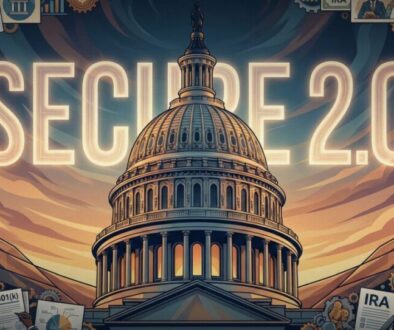Medicaid cuts would devastate rural hospitals, communities

House Republicans in February pushed through a budget plan, now under consideration in the Senate, that would require about $880 billion in cuts to Medicaid over the next decade to help cover the cost of $4.5 trillion in tax cuts. The move could result in 11 million Americans losing health coverage, the Urban Institute estimates.
What could come next for this public health program was the topic of a recent webinar by the University of Southern California Center for Health Journalism.
Medicaid is the largest public health program in the U.S., covering more than 72 million Americans, said Edwin Park, Georgetown University research professor. Medicaid covers 40% of births in the U.S. and covers 60% of all spending for long-term care services and support. More than one-third of Americans with disabilities rely on Medicaid to pay for medical and support services.
In addition, he said, Medicaid is the largest funder of behavioral health services and substance abuse disorder services. Rural residents disproportionately depend on it, as do communities of color.
One-third of Medicaid enrollees are children, he said, and 23% of older and disabled Americans depend on the program. But older and disabled Americans account for more than half of Medicaid spending.
Proposals under consideration in Congress would move more of the program’s costs to the states, Park said. Some of those cost shifts could include placing a per capita limit on federal spending, reducing support for the Medicaid expansion that occurred as part of the Affordable Care Act, and cutting eligibility by establishing work requirements on recipients.
States have three choices on Medicaid
Park said the likely impact of these cost shift would depend on how the states would be impacted. Medicaid currently accounts for 56% of all federal funding to the states.
“The states will have three stark choices to make,” he said. “They are raise taxes, cut other parts of their budgets or cut Medicaid.
“This would involve significant reductions in number of people enrolled and, for those enrolled, reductions in access to needed care, whether it’s long-term care or acute care services. States would not be able to sustain their current Medicaid programs as they are over the long term.”
Impact on rural communities
Medicaid cuts would hurt rural hospitals that disproportionately rely on Medicaid, Park said. “These cuts would impact not only those enrolled but entire communities because rural hospitals could be pushed over the edge and forced to close if Medicaid cut. This will have economic impacts on entire communities because rural hospitals are often a leading employer in rural communities.”
Reductions in federal Medicaid spending would hit the states at a time when they are losing a lot of unrelated federal health spending, such as public health program support, said Alice Miranda Ollstein, senior health care reporter for POLITICO Pro. “This would leave them with fewer resources to make up for the Medicaid cuts,” she said.
© Entire contents copyright 2025 by InsuranceNewsNet.com Inc. All rights reserved. No part of this article may be reprinted without the expressed written consent from InsuranceNewsNet.com.
The post Medicaid cuts would devastate rural hospitals, communities appeared first on Insurance News | InsuranceNewsNet.





